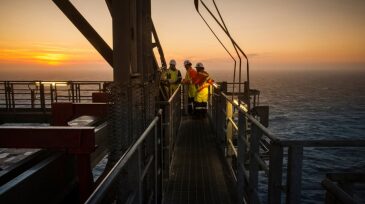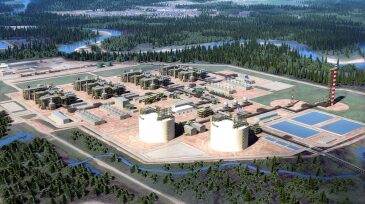Canada
-
A shut-in subsea flowline is believed to be the source of the spill on Husky Energy’s SeaRose FPSO offshore Newfoundland and Labrador. The spill is believed to be the largest in the history of the Canadian province.
-
The deal gives Equinor exploration parcels in the prolific Jeanne d’Arc Basin, near its existing discoveries offshore Newfoundland and Labrador.
-
Canadian agencies will begin establishing the scope of environmental assessment of the project, which is scheduled to start up in 2024.
-
After years of near-misses, a Shell-led partnership is building the first liquefied natural gas export facility in Canada. It creates a much-needed export market for producers facing a gas glut, but more is needed.
-
The emissions intensity of upstream Canadian oil sands production will continue to decline in coming years, falling to 30% below 2009 levels by 2030, a new report by business information provider IHS Markit says.
-
The Mental Health Commission of Canada explains the effect of employees’ daily experience on mental health in new white paper.
-
An improved occupational health and safety system comes into effect on 1 June to better protect Alberta workers and ensure they have the same rights as other Canadians.
-
On 26 April 2018, Canada's minister of environment and climate change announced new regulations under the Canadian Environmental Protection Act, 1999, to reduce methane emissions in the oil and gas sector by almost half.
-
The Alberta Energy Regulator has issued two draft directives that will require upstream oil and gas operators to reduce methane emissions from upstream oil and gas sites by 45% from 2014 levels by 2025.
-
Proponents seeking to develop large energy, infrastructure, and mining projects in Canada face significant uncertainty regarding future requirements for engaging with Indigenous peoples. These requirements may be influenced by a number of factors.









